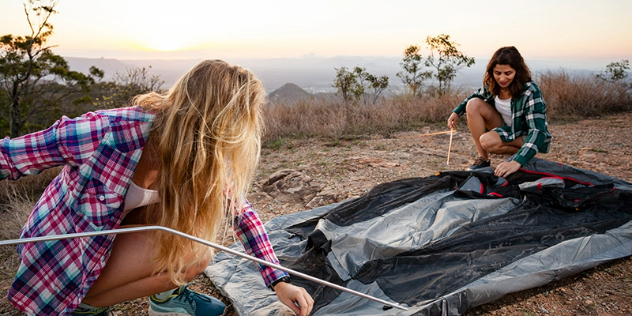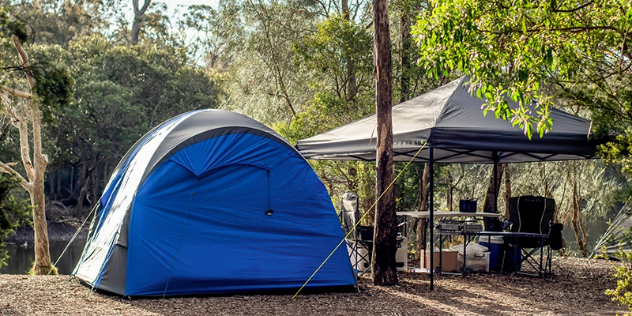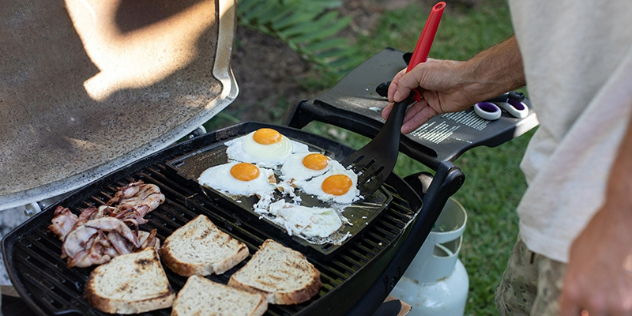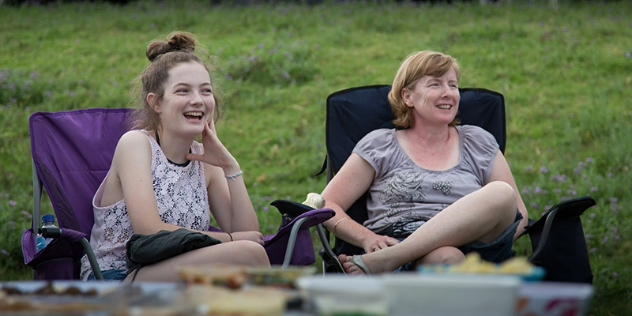Camping for beginners

The secret is out: camping is cool again. This outdoor activity has exploded in popularity thanks to a new generation of holiday parks and camp sites catering to every travelling style.
However, if you’ve never tried sleeping under the stars, preparing for your first camping trip can be daunting. Make the most of your first big outdoor adventure with our beginner's guide to camping in Australia.
Choose the right camping spot
Camping is meant to be an adventure: whether pitching a tent by the beach, wild camping in the bush or thundering down a waterslide at a holiday park with all the amenities; there are all sorts of ways to camp according to your comfort and taste.
It always helps to get recommendations from friends and families, but keep in mind that their idea of a fun camping trip, could be your worst nightmare. So ask the people whose situation mirrors your own, or who share similar taste.
For the true beginner, or for a more family friendly option, most caravan and camping parks have adopted a resort style model. Amentities could be as luxurious as adults-only pools, kid’s clubs, private ensuite camp sites or they may have just enough so you don’t have to forego the basics, like hot showers, electricity and wifi.
Some camp grounds will allocate a site, while others you’re free to set up where you like. In those instances, look for a spot on level ground that offers a little distance from other groups; after all, no one likes a space invader.
No matter where you choose to go, however, consider booking ahead. Campsites often fill up weeks, sometimes months, in advance, especially during holiday periods and public holiday weekends.
Need more inspiration on some popular camping sites? Check out some of Australia's best camping spots.
Factor in driving distance and time of day
If you plan to set out on a Friday afternoon after work for a weekend camping trip, you might want to consider if there’ll be enough daylight left to set up camp.
A common faux pas of newbie campers is not leaving enough time of sufficient daylight to set up their camp site. Be sure to consider the distance of the drive and leaving time, factoring in school-zone traffic and peak hour.

Prepare your camp gear
From tents to sleeping bags and the all-important camp chair, putting together a camp kit can be an expensive investment. The good news is you don’t have to spend big all at once to give camping a go. Campers are enthusiasts, and are generally keen to share their gear with others.
Look at what you already have on hand, and then borrow from friends and family to pad out the list. Be selective with necessities vs indulgences, and plan ahead by researching your camp site to discover what amenities are already available.
Camping is a learning experience. Even the most seasoned pros will forget something one year or think of something new to add to their kit. Take inspiration from campers around you, ask for advice from fellow campers and take note of the things you’d like to have next time around.
Essential camping must-haves
- Insect repellent
- Headlamp or torch
- Phone charger
- Good quality garbage bags
- First aid kit with any prescription medication. (Tip: It’s also worthwhile taking a copy of any prescriptions)
- Tent pegs and poles

Packing a car for your first camping trip is like a giant game of Jenga. Double-check all your gear will fit in your car, while still allowing space to check your rear mirror and blind spots. If you are going on an extended trip or bringing a large amount of equipment, you might consider a trailer if your car is able to tow.
Pro tip: Pack some shade cover! Tents get cramped and hot so having a covered retreat area will make your trip far more comfortable.
Plan your meals
While some camp sites will be well surrounded by cafes and restaurants or have amenitities within the grounds for cooking, others are not. Before you put together a meal plan, consider what facilities you’ll have access to, and how you’ll store food safely so it doesn’t spoil.
Along with extreme temperature fluctuations that can spoil food, many camp sites are home to resident wildlife with a penchant for sharing human snacks: from dive-bombing kookaburras stealing sausages and kangaroos who like to rifle through tents to cockatoos opening bin lids with their beaks. Sealing your food in airtight containers can deter even the most determined creatures (including hungry kids).
5 questions to ask when planning camp food
- Is there a camp kitchen or barbeque area where you can cook?
- Is there a town close by where you can top up your supplies?
- Is it possible to purchase ice if you bring an Esky?
- Do you need to bring your own drinking water?
- What utensils will you need?

Prepare for the elements
Outdoor enthusiasts have a saying: there’s no bad weather, just bad gear. The trick to making the most of your first camping experience is to be prepared for whatever the elements throw at you.
Often when you’re camping, it’s not unusual to face extreme weather fluctuations, with searing heat during the day and temperatures dropping to single digits overnight, especially in remote areas. Tents and sleeping bags are often seasonally rated, so make sure you’ve got the right kit for the right season.
Be sure to pack light, but also pack enough warm clothes for the cold. Breathable layers are the best option, while long-sleeved and long-legged pants can protect your skin from the sun during the day and from mosquitoes at night. A simple plastic poncho fits inside the glove compartment and can keep you dry, while a pair of flip-flops are also handy to shower in (and for that midnight bathroom break).
Stay up-to-date with weather warnings
Before you set out, it’s worth knowing the local radio station frequency to check for emergency weather warnings, including fire and flood. If there’s a weather warning, check to see if local emergency services recommend you delay your trip, or if it might be time to pack up and go.
You will also need to check fire ratings if you intent to have a campfire. Not only is this an extremely dangerous risk, it’s also illegal to start a fire of any kind during a fire ban and doing so can result in a hefty fine.
Leave no trace
Camping is for those who want to appreciate and be closer to nature. So if you are going to embark on a camping adventure, make sure you’re prepared to leave your site behind jusy as you found it. That means taking your rubbish with you and disposing of it in an environmentally friendly way. Remember, no one likes a tosser.

Check your car for routine maintenance
A road trip to set off camping means you’ll likely traverse some decent terrain along the way, so before any adventure be sure to follow our maintenance tips to get your car road trip ready. Check tyre pressure, oil levels, radiator and brakes, ensure wipers and windscreens are clean or replace them if they squeak or leave streaks behind.
If you are going on a long road trip in hilly conditions, speak to your mechanic or call NRMA Motoring Advice and make sure you’ll be able to get help if you get stuck.
Images via Getty Images.


